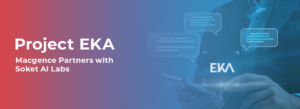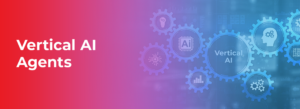Easy Ways to Get Started with LLM-Based Automation
Language Model-Based (LLM) Automation is transforming the way we interact with technology. By leveraging advanced artificial intelligence (AI) models to automate complex tasks, LLM automation is becoming a critical tool for tech enthusiasts and professionals alike. From optimizing efficiency to revolutionizing user experiences, the implications are vast and profound.
This blog will explore LLM automation in-depth, from its principles and applications to its real-world impact across industries. We’ll also highlight best practices for implementation and provide insights into overcoming the challenges it presents. By the end, you’ll have a clear understanding of why this technology is pivotal in shaping the future of automation.
What Is LLM Automation?
As in the case of GPT and its derivatives, LLM automation pertains to systems utilizing large language models to perform automated tasks. These AI models are effective in comprehending and generating human language as they have been trained with a considerable amount of data.
How Does It Work?
LLM automation relies on neural network-based architectures to perform tasks. These models are trained using massive datasets provided by companies like Macgence, which specialize in supplying high-quality, annotated data for AI/ML model development. Advanced algorithms process this data to learn patterns, syntax, semantics, and even context, enabling AI-driven solutions to perform tasks such as content creation, sentiment analysis, and decision-making.
Key Features and Applications
LLM automation is highly versatile and can be applied across various fields, including:
- Professional Support: By leveraging these LLMs, chatbots are capable of managing customer interactions accurately, improving response times and providing a seamless customer service experience.
- Content Creation: Content focused tools that author high standard, SEO strong blogs, adverts and product descriptions.
- Code assistance: Developers are supported through AI code assistants who offer suggestions, perform syntax checks and write segments of more complex code.
The Advantages of Implementing LLM Automation
LLM-based automation offers numerous benefits for businesses and professionals looking to optimize operational efficiency and reduce complexities. Here’s why it’s an essential investment:
1. Improved Time Efficiency
Tasks that once took hours can now be completed in minutes. For example, LLMs can analyze extensive datasets or draft content with unparalleled speed, allowing teams to focus on higher-value activities.
2. Cost Savings and Error Reduction
By minimizing manual interventions, LLM automation reduces labor costs and mitigates human errors. This is particularly valuable in fields like data entry, translation, and transcription, where accuracy is paramount.
3. Enhanced User Experience
Through features like personalized customer interactions and intuitive interfaces, LLMs help create a seamless and more satisfying user experience.
4. Scalability
These AI models can handle increasing workloads without compromising efficiency, making them perfect for enterprise environments.
Challenges and How to Overcome Them
While LLM automation presents vast opportunities, it’s not without challenges. Organizations must address these obstacles to successfully harness its potential.
Common Challenges
- High Implementation Costs: Developing, training, and maintaining LLM systems can be resource-intensive.
- Data Privacy Concerns: When working with sensitive information, safeguarding user data becomes crucial.
- Bias in Models: Poorly curated datasets can lead to biased outputs, posing ethical and reputational risks.
Solutions for Overcoming Challenges
- Collaboration with Experts
Organizations like Macgence provide diverse, high-quality datasets and expertise to ensure effective LLM implementation.
- Invest in Infrastructure
Leverage cloud-based solutions to reduce upfront costs while accessing scalable computing power.
- Regular Audits
Test models for bias and inaccuracies, and update datasets frequently to eliminate skewed outputs.
LLM Automation Across Tech Fields
LLM automation is redefining various industries, driving innovation and setting benchmarks for the future. Below are some insights into its influence:
Software Development
Developers use LLMs to debug code, suggest improvements, and even write complex algorithms. These AI systems expedite workflows, allowing faster releases without compromising quality.
Data Analysis and Decision-Making
LLMs process unstructured data, extracting actionable insights within minutes. This capability assists decision-makers in sectors like healthcare, finance, and marketing, where real-time analytics are critical.
Future Trends
Emerging trends include AI integrations for real-time collaborative tools, advanced personalization in e-commerce, and autonomous knowledge management systems. These advancements will provide more specialized, context-aware, and scalable solutions.
Case Studies of LLM Automation
Case Study 1: E-Commerce Powerhouse
An e-commerce company partnered with Macgence to leverage LLM automation for customer service. After implementing AI chatbots, the company saw a 35% increase in customer satisfaction and saved over $3.5 million annually.
Case Study 2: Boosting Developer Productivity
A tech startup adopted an AI-powered code assistant. Within three months, development productivity increased by 50%, significantly reducing the time-to-market for new software.
These examples illustrate how LLM automation can generate tangible value, provided it’s paired with strategic planning and execution.
Best Practices for LLM Automation

To make the most of LLM automation, consider these guidelines:
1. Clearly Define Goals
Articulate specific objectives before implementing LLM automation, whether it’s improving customer service or enhancing productivity.
2. Prioritize High-Impact Areas
Identify areas within your operations where LLM capabilities can provide the most value.
3. Partner with Data Providers
Collaborate with companies like Macgence to ensure access to high-quality datasets that enhance your AI’s utility and effectiveness.
4. Train Your Team
Educate your staff on the capabilities and limitations of LLM automation, enabling seamless integration into workflows.
5. Monitor and Optimize
Continuously evaluate the performance of your AI models and make necessary adjustments to improve accuracy and efficiency.
Explore the Power of LLM Automation
This technology developed for LLM automation should no longer be considered as something that will materialize in the future but something that exists in reality. It is shaping how specific sectors view the concepts of productivity and modernization. LLM enthusiasts and businesses are now able, by appreciating its tenets, tackling its obstacles, and adhering to the recommended practices, to open brand new possibilities.
Interested in exploring further? Learn how Macgence can support your AI development needs with expertly curated data and insights. Share your experiences in the comments below—we’d love to hear your thoughts!
FAQs
Ans: – With traditional automation, there are rule-based systems while LLM automation is based on AI models that have been trained in understanding and generating human-like language which makes it more flexible.
Ans: – Security depends on encryption methods and the training data’s privacy standards. Collaborating with trusted providers like Macgence ensures data safety and compliance.
Ans: – Absolutely. Small businesses can use LLM-powered tools for customer service, marketing, and data analysis to enhance operations without stretching resources.
You Might Like
February 28, 2025
Project EKA – Driving the Future of AI in India
Artificial Intelligence (AI) has long been heralded as the driving force behind global technological revolutions. But what happens when AI isn’t tailored to the needs of its diverse users? Project EKA is answering that question in India. This groundbreaking initiative aims to redefine the AI landscape, bridging the gap between India’s cultural, linguistic, and socio-economic […]
March 7, 2025
What is Data Annotation? And How Can It Help Build Better AI?
Introduction In the world of digitalised artificial intelligence (AI) and machine learning (ML), data is the core base of innovation. However, raw data alone is not sufficient to train accurate AI models. That’s why data annotation comes forward to resolve this. It is a fundamental process that helps machines to understand and interpret real-world data. […]
March 6, 2025
Vertical AI Agents: Redefining Business Efficiency and Innovation
The pace of industry activity is being altered by the evolution of AI technology. Its most recent advancement represents yet another level in Vertical AI systems. This is a cross discipline form of AI strategy that aims to improve automation in decision making and task optimization by heuristically solving all encompassing problems within a domain. […]
March 5, 2025
Use of Insurance Data Annotation Services for AI/ML Models
The integration of artificial intelligence (AI) and machine learning (ML) is rapidly transforming the insurance industry. In order to build reliable AI/ML models, however, thorough data annotation is necessary. Insurance data annotation is a key step in enabling automated systems to read complex insurance documents, identify fraud, and optimize claim processing. If you are an […]





